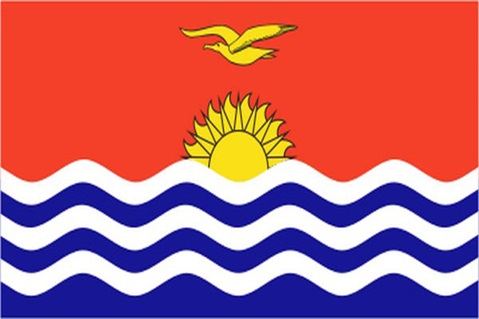
About WHO in Kiribati
A woman weaves palm leaves that are used for roofing in South Tawara, Kiribati.
The World Health Organization (WHO)
The World Health Organization (WHO) was established on 7 April 1948 as the directing and coordinating authority in global public health within the United Nations system. Working at three levels in the Organization (global, regional and country), more than 7000 WHO staff worldwide collaborate with the governments of 194 Member States and other partners to achieve the WHO founding vision of the attainment of the highest possible level of health by all people.
The Western Pacific Region
The WHO Western Pacific Region is home to more than one quarter of the world’s population, stretching over more than one third of the distance around the globe. In all, more than 600 WHO staff work in 15 country offices and the Regional Office in Manila, Philippines, to support Member States in achieving better health outcomes for the Region’s nearly 1.9 billion people in 37 countries and areas.
Tailored support for the Pacific
To coordinate and provide timely, tailored support and backstopping to 21 Pacific Island countries and areas, in 2010 the WHO Western Pacific Regional Office established the Division of Pacific Technical Support (DPS) in Suva, Fiji. The Country Liaison Office in Kiribati is one of six other offices in the Pacific, and which are part of DPS. These offices include: the Country Offices in Samoa and the Solomon Islands and Country Liaison Offices in Kiribati, the Federated States of Micronesia, Tonga and Vanuatu. Working together as a Division, the DPS divisional hub in Suva as well as the six country and country liaison offices provide support to: American Samoa, Cook Islands, Fiji, French Polynesia, Guam, Kiribati, Marshall Islands, the Federated States of Micronesia, Nauru, New Caledonia, Niue, the Commonwealth of the Northern Mariana Islands, Palau, Pitcairn Islands, Samoa, Solomon Islands, Tokelau, Tonga, Tuvalu, Vanuatu, and Wallis and Futuna.
The Division’s work spans five main areas and is delivered in close collaboration with Pacific governments, other UN agencies, development partners, donors, and non-governmental organisations to achieve better health outcomes for Pacific Island communities.

Contact WHO
The WHO Country Liaison Officer in Kiribati:
Dr Wendy Snowdon
Office address:
World Health Organization Bikenibeu, Tarawa Kiribati
Postal address:
World Health Organization P.O. Box 210 Bikenibeu, Tarawa, Kiribati
Telephone number:
(686) 28231
Fax
number:
(686) 28188
Office hours:
08.00 - 12.30 13.30 - 17.00 (Monday to Friday)
Email:
wpfjiwr@who.int
Ministry of Health and Medical Services
Address:
PO Box 268, Bikenibeu (Nawerewere), Tarawa Kiribati
Phone: +686 2 8100
Fax: +686 2 8152
Email:
info@mhms.gov.ki
Website:
https://mhms.gov.ki